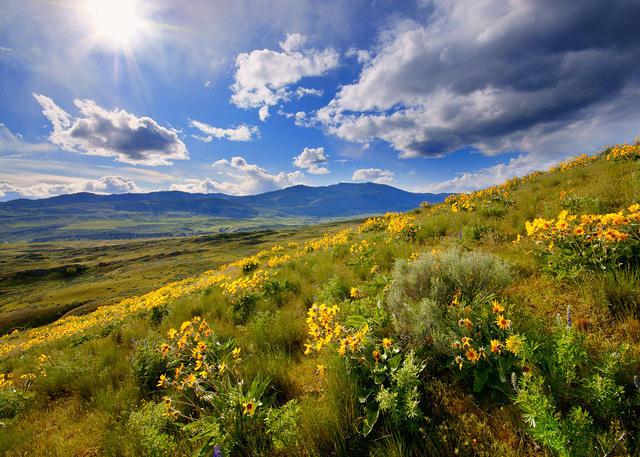Photos
Click to display full size or right-click to save to your device.
ARCHIVED NEWS RELEASE
This document is provided for archival purposes only. Archived documents
do not reflect current WDFW regulations or policy and may contain factual
inaccuracies.
News release Feb. 14, 2022
Kurt Merg, WSRI Coordinator, 509-288-7067
EPHRATA – The Washington Department of Fish and Wildlife (WDFW) in partnership with the Washington State Conservation Commission (SCC) and the Washington Department of Natural Resources (DNR) is seeking project proposals to benefit wildlife impacted by wildfire on private, tribal, and public lands in Douglas, Lincoln, and Okanogan counties.
Last year, state agencies formed a steering committee to make decisions on how to use new state funding to benefit wildlife by restoring shrubsteppe habitat, implementing actions to help at-risk species, and supporting working lands in Eastern Washington. An advisory group with representatives from local, state, federal, tribal, agricultural, and conservation organizations provided recommendations to the steering committee on delivery mechanisms, location priorities, and restoration program development.
State funding will support a new resource program called the Washington Shrubsteppe Restoration Initiative (WSRI), as well as a collaborative long-term strategy for shrubsteppe conservation and fire preparedness, response, and restoration.
The WSRI will coordinate delivery of resources and services to projects aimed at benefitting wildlife by restoring shrubsteppe habitat, rebuilding wildlife-friendly fencing, and incentivizing grazing practices that allow for habitat recovery after wildfires. Initially, the new initiative will focus on landscapes damaged by the Pearl Hill, Cold Springs, and Whitney fires in September 2020.
SCC will coordinate working lands support resources, which include removal of burned fence, fence retrofit or replacement with wildlife friendly versions (including virtual fence opportunities), and facilitating deferred grazing to allow habitat time to recover.
WDFW will facilitate habitat restoration resources, which include labor from Washington Conservation Corps crews, cultural resources support, native plant materials, and limited project support funding.
Application period opens on Feb. 14, 2022
The WSRI is now seeking project proposals to benefit wildlife by restoring shrubsteppe habitat and supporting working lands in Douglas, Lincoln, and Okanogan counties.
Public and tribal land managers, lessees of public land, and private landowners are encouraged to contact their local conservation district or the WSRI Coordinator to learn more and submit project proposals. Conservation districts must submit project proposals on behalf of private landowners for working lands projects.
The first review of project proposals will start March 1, 2022, and then on an ongoing basis until available resources are allocated. It is in the best interest of applicants to reach out to their conservation district or WSRI Coordinator as soon as possible.
For working lands projects, contact your local conservation district.
- Okanogan Conservation District, 509-422-0855
- Foster Creek Conservation District, 509-888-6372
- Lincoln County Conservation District, 509-725-4181 ext. 117
For habitat restoration projects, contact WSRI Coordinator Kurt Merg at kurt.merg@dfw.wa.gov or 509-288-7067.
To learn more about the WSRI and the collaborative long-term strategy for shrubsteppe conservation, visit WDFW’s website.
For more information about shrubsteppe habitats in Washington, visit WDFW’s website or watch the short film, “This Land is Part of Us” produced in partnership with Conservation Northwest.
The Washington Department of Fish and Wildlife works to preserve, protect and perpetuate fish, wildlife and ecosystems while providing sustainable fish and wildlife recreational and commercial opportunities.
